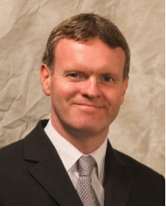History

Mr S Power
Head of History
The Team
| Mr L Ebbs | Teacher of History |
| Miss J Fagg | Teacher of History |
| Miss Z Noonan | Teacher of History and Deputy Head |
| Mrs N Rana-Brown | Teacher of History and Assistant Head |
Introduction to the Department
Department Mission Statement:
‘History is important because it connects us as a human family to people,
ideas and cultures across the world’
As a department we believe that History is fundamentally important because it illuminates our humanity and inhumanity and helps us to understand the ongoing local, national and international narrative of which we all a part of. Lifelong students of history can learn from our mistakes and see how past events have shaped the contours of current affairs. History helps students to fulfil our school mission statement to be ‘Christ to all’.
The Purpose of History at St Peter's
The purpose and intent of studying history at St Peter's is to bring students into a rich dialogue with the past. We aim to infuse in our students a passion for this subject that will remain with them for the rest of their lives. The curriculum has been designed to develop students’ curiosity, sense of identity and to foster an enjoyment of learning.
The department intends that students gain an understanding of how and why the world and society has changed. We hope students develop a diverse world-view that encompasses gender, culture and the importance of diversity. This we hope will enrich our Catholic ethos ‘To be Christ to all’. It is our intent that students studying History at St Peter’s will leave school with a broad knowledge of both local, national and worldwide events of historical significance.

Key Stage 3 mASTERY
The mastery curriculum has been structured to equip students to master four key core historical skills: Causation (Year 7), Significance (Year 8) and Source analysis and Interpretations (Year 9).
Year 7 - (Causation) – Power & Conflict 1066 to 1660
This scheme of lessons teaches students causal reasoning. We analyse how and why events or states of affairs occurred or emerged. Over time, and through repeated encounters with these types of questions, we endeavour that students develop schemata that allow them to recognise and deploy, with growing fluency and flexibility, the complex ways in which historians build these arguments. The topics we will cover in Year 7 include: Anglo Saxons, medieval religious conflicts, the Peasants Revolt, the Tudor and the English Civil War.
Year 8 - (Significance) - The Development of Britain 1750 to 2000
In Year 8, students will master judging historical significance. This includes the significance of events and people through time. The topics students will study are: the Industrial Revolution, important legislative changes in the 19th century, the development of the British Empire, the First World War and the development of Britain as a multicultural nation.
Year 9 - (Sources/Interpretations) – Moments that Shaped the Modern World
Our topics in Year 9 give the students a grounding in their understanding of the contemporary world. We have entitled our curriculum ‘Moments that Shaped the Modern World’. The curriculum is delivered through the skills of interpretation and source analysis. These are key components of the day-to-day work of a historian. The topics students will study are: European dictatorships in the 20th century, the Second World War, the Holocaust, women’s history since ancient times, the development of civil rights in America and a case study of the Vietnam War.
key stage 4 information
In Years 10 and 11, we follow the Edexcel History 9 to 1 programme. We follow a course that enables students to develop and extend their knowledge and understanding of specified key events, periods and societies in local, British and wider world history. The Curriculum intent is designed to develop students as independent learners and as critical and reflective thinkers. It is also designed to instil in students a lifelong love of this subject. We intend that they will develop the ability to ask relevant questions about the past, investigate issues critically and to make valid historical claims by using a range of sources in their historical context. Students will also develop an awareness of why people, events and developments have been accorded historical significance, and how and why different interpretations have been constructed.
The course is structured with written three exams:
Paper 1 is a thematic study and historic environmental study. This focuses on crime and punishment in Britain, c1000–present and Whitechapel, c1870–c1900: crime, policing and the inner city.
Paper 2 is a period study and British depth study the focus here is Henry VIII and his ministers, 1509–1540 and Superpower relations and the Cold War, 1941–91.
Paper 3 is focused on knowledge, interpretations and sources from Weimar and Nazi Germany, 1918-39.

